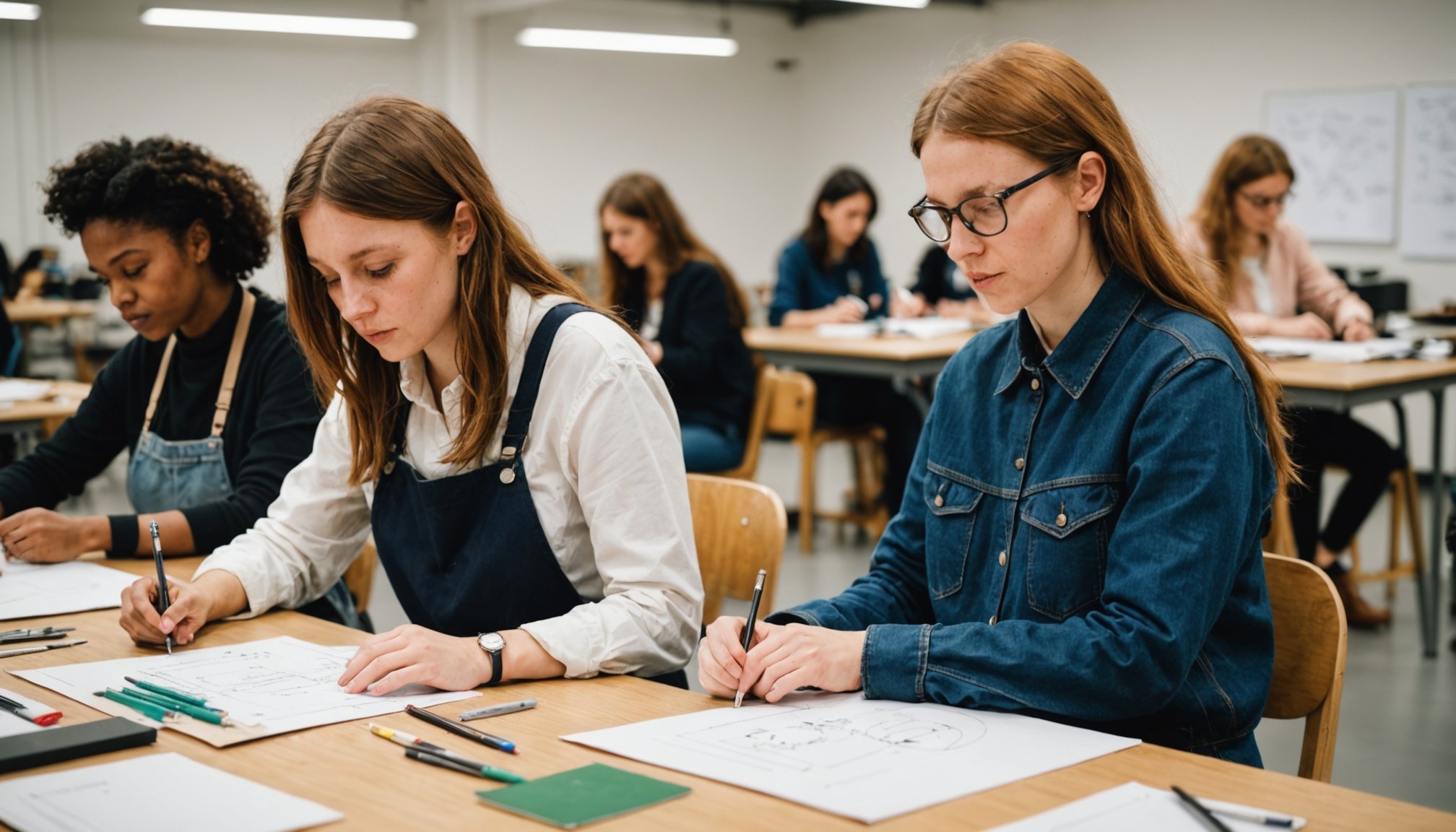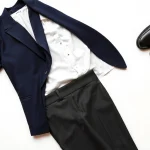Overview of Premier Fashion Schools in the UK
The UK’s rich tradition of fashion education is renowned for its innovative curricula and emphasis on sustainability. Fashion schools here have evolved to include UK fashion education that intertwines art with practicality, a necessity driven by the industry’s dynamic nature. Initially, the focus was on craftsmanship and tailoring skills. Over time, as global awareness around eco-friendly practices gained momentum, these institutions started integrating sustainable design into their programs.
Modern fashion curricula now heavily prioritize sustainability, recognizing the fashion industry’s impact on the environment. By incorporating sustainable design topics, UK fashion schools teach students not only to create, but also to consider ecological consequences. This shift addresses the urgent need for responsibility in fashion, marrying creativity with environmental ethics.
Also read : Discover Top UK Lingerie Boutiques Offering Expert Fitting Advice and Guidance
Several notable fashion schools are recognized for their commitment to sustainable practices. For instance, students often engage in projects that utilize zero-waste techniques or focus on sourcing eco-friendly materials. These schools offer a variety of workshops, each aiming to equip future designers with the technical and ethical know-how to address contemporary challenges in the fashion world. As such, the UK holds a crucial position in shaping the industry’s future landscape through its educational prowess.
Highlighted Fashion Schools
Exploring the premier fashion schools reveals their unique contributions to sustainable fashion programs. These institutions not only emphasize creativity but also prioritize eco-conscious practices. Let’s explore some of the top fashion schools and their sustainable initiatives.
In the same genre : Elevate your everyday style: chic and effortless ways to rock british tweed for casual outings
School 1: Central Saint Martins
Central Saint Martins is celebrated for its compelling sustainable fashion programs. They combine theory with practical experiences to engage students in sustainable methods. Workshops focus on innovations like zero-waste textiles, encouraging students to rethink traditional manufacturing processes. Renowned faculty members drive these programs, often being pioneers in sustainability.
School 2: London College of Fashion
Known for dynamic environmental initiatives, the London College of Fashion leads with robust, interdisciplinary courses. Their ‘Fashioned from Nature’ module integrates biology with fashion design, promoting eco-friendly solutions. Students benefit from being taught by industry experts deeply invested in the future of sustainable fashion.
School 3: Royal College of Art
The Royal College of Art emphasizes groundbreaking research in sustainable design. Their programs extend beyond fashion, incorporating technology and engineering principles. Students gain hands-on experience through projects focusing on biodegradable materials and ethical production. Faculty at the RCA often collaborate with global sustainability leaders, enhancing the educational impact.
Details on Sustainable Design Workshops
A dynamic component of UK fashion education is its hands-on learning approach. Sustainable design workshops are a crucial part of this educational experience. Students actively participate in sessions that blend traditional techniques with cutting-edge sustainable practices, providing a comprehensive understanding.
Workshops are meticulously designed to teach skills essential for eco-friendly fashion. For instance, students explore techniques like upcycling, zero-waste pattern cutting, and the use of eco-friendly dyes. These hands-on workshops empower students to apply creativity while considering sustainability, ensuring that they understand fashion’s ecological impacts.
Integration of innovative practices alongside traditional skills helps students stay industry-relevant. Digital design tools for pattern making and 3D textile printing are often incorporated, highlighting the merging of technology and sustainability. These experiences equip students with a toolkit that is both modern and ecologically aware.
Moreover, these workshops encourage collaboration, critical thinking, and solution-oriented approaches to fashion design problems. By fostering an environment where students can experiment and innovate, these workshops play a pivotal role in shaping future designers. The learning outcomes significantly contribute to students’ abilities to transition successfully into sustainable fashion careers.
Faculty Expertise in Sustainable Fashion
The success of UK fashion education heavily relies on the distinguished industry experts leading the way in sustainable practices. Each professor and lecturer brings a unique background, blending creativity with technical knowledge, to deliver a rich learning experience. With an impressive array of sustainability leaders, these fashion schools are well-equipped to cultivate a new generation of eco-conscious designers.
Several faculty members have contributed significantly to the field with their groundbreaking research and dedication to sustainability. For instance, many are involved in projects that explore innovative materials like bio-textiles or energy-efficient manufacturing. This ongoing research often places them at the forefront of sustainable fashion development, fostering an environment of continuous learning and adaptation.
Moreover, these experts frequently collaborate on global sustainability initiatives, ensuring that students gain insights from various cultural and industry perspectives. By spearheading influential research, they inspire students and showcase the endless possibilities within sustainable fashion. Such collaboration enriches the curriculum, providing students with opportunities to engage with real-world challenges and apply theoretical concepts practically.
Students benefit from participating in this vibrant ecosystem where pioneering research and practice intersect, preparing them to lead in transforming the fashion industry towards a more sustainable future.
Student Testimonials and Success Stories
Within the vibrant community of UK fashion schools, student experiences provide valuable insights into the transformative power of sustainable fashion education. Engaging in hands-on workshops, students appreciate the opportunity to blend creativity with eco-friendly principles. These immersive experiences allow them to witness the tangible impact of their projects, from designing with biodegradable materials to practising zero-waste techniques.
Alumni success stories further highlight the effectiveness of this educational approach. Graduates often emerge as leaders in the sustainable fashion sector, contributing innovative solutions to industry challenges. Many alumni have launched their own eco-conscious brands, demonstrating the real-world application of the skills acquired during their studies. Their achievements underscore the potential of UK fashion education to mould future pioneers in sustainability.
Education’s impact stretches beyond technical skills, profoundly shaping students’ career trajectories. The knowledge gained equips them to navigate the complexities of the modern industry effectively, inspiring confidence to tackle ecological issues head-on. This foundation not only empowers students to succeed professionally but also motivates them to drive meaningful change. The blend of these experiences and successful outcomes reinforces the UK’s reputation for nurturing talent capable of shaping a sustainable fashion future.
Application Process and Opportunities
Navigating the fashion school applications process involves several crucial steps, particularly for those interested in the esteemed UK fashion education scene. Prospective students must be aware of key enrollment procedures to ensure a smooth application process. Begin by researching individual institutions, as each has unique requirements and deadlines. Gathering information on sustainable design courses is vital, as this focus can enhance your educational experience in line with industry demands.
Typically, schools require submission of an application form, a personal statement, and a portfolio showcasing your design work. Highlight your commitment to sustainability in your portfolio to better align with the values of these fashion schools. Ensuring all materials are prepared well ahead of deadlines, often set several months before the start of the academic year, is crucial for timely submission.
Scholarships and financial aid options are available to support students passionate about sustainability. These funds can significantly alleviate financial burdens and encourage diversity in student bodies committed to eco-conscious fashion. Researching scholarships early can provide access to resources dedicated to those with a keen interest in sustainable design initiatives.








